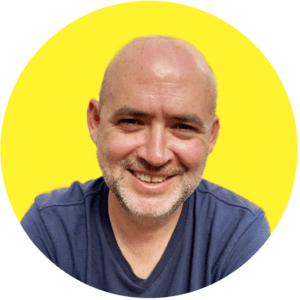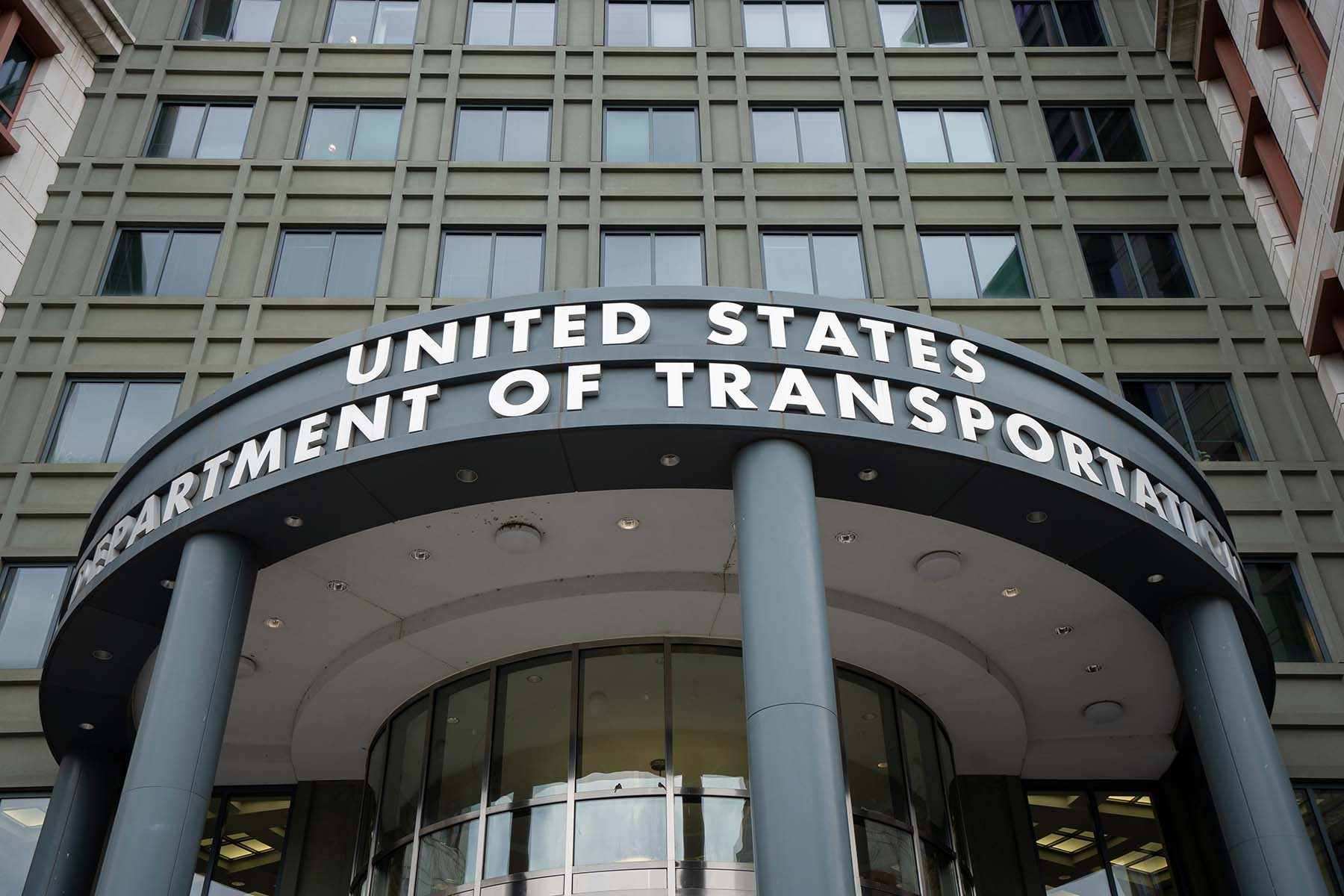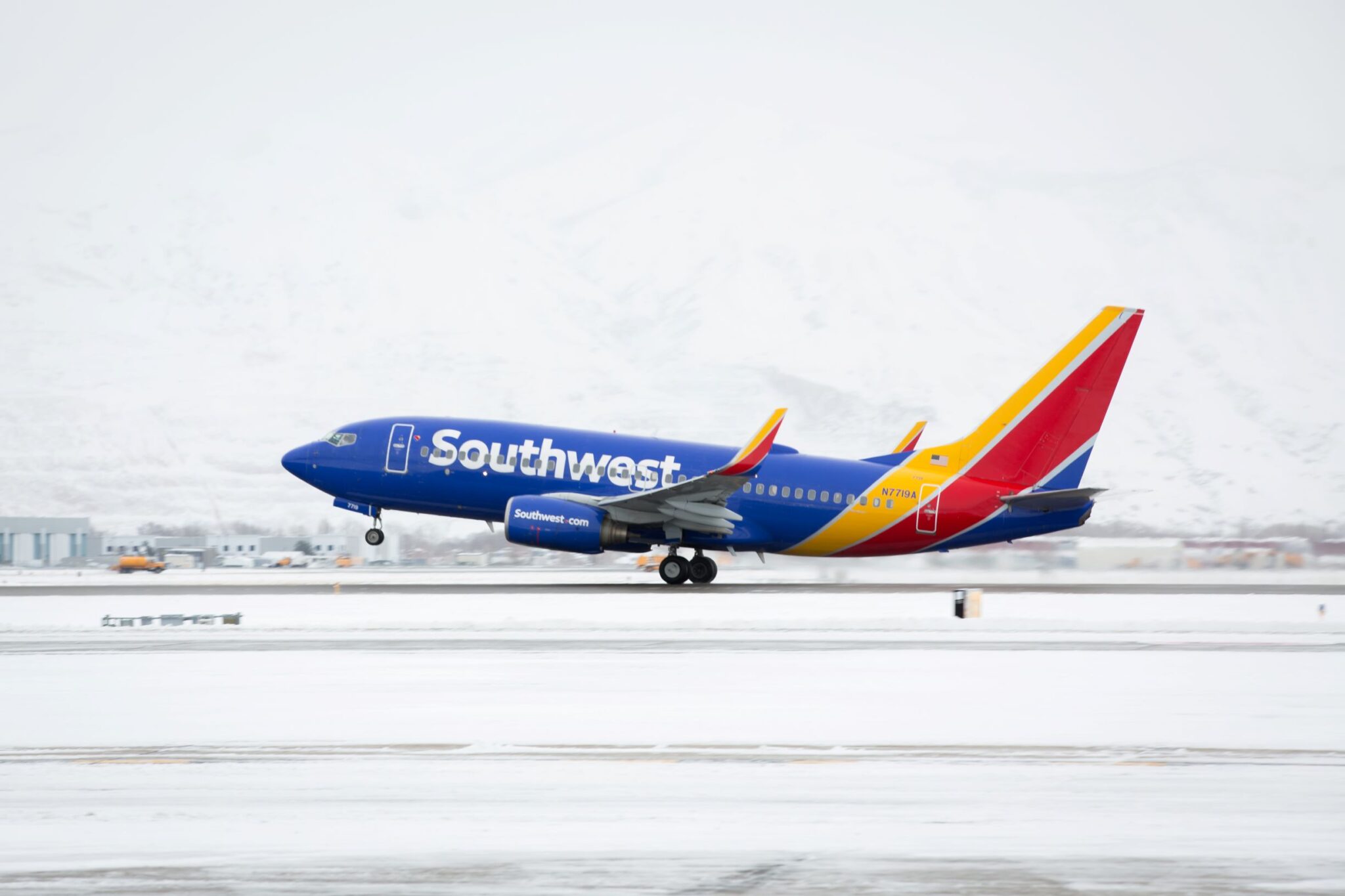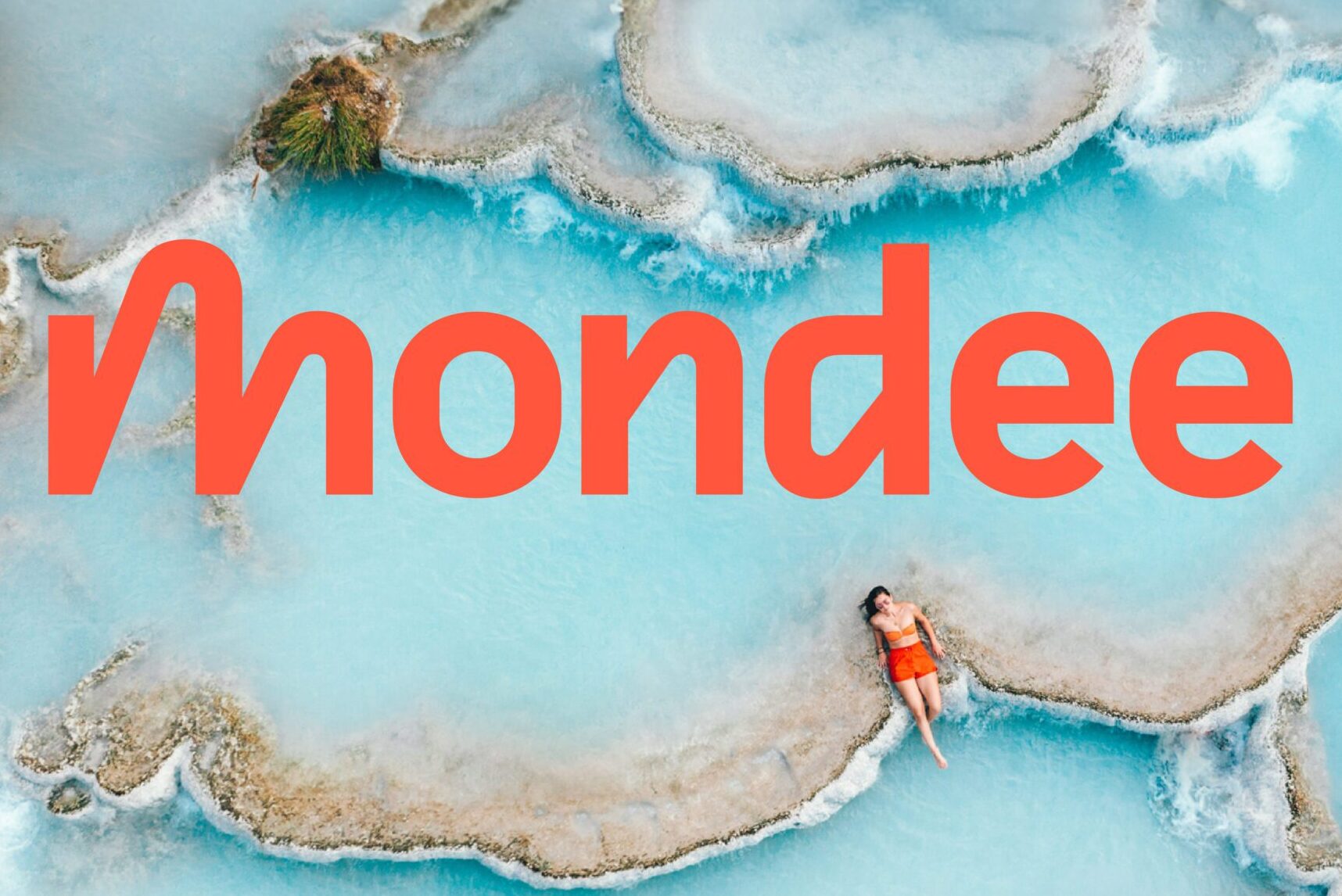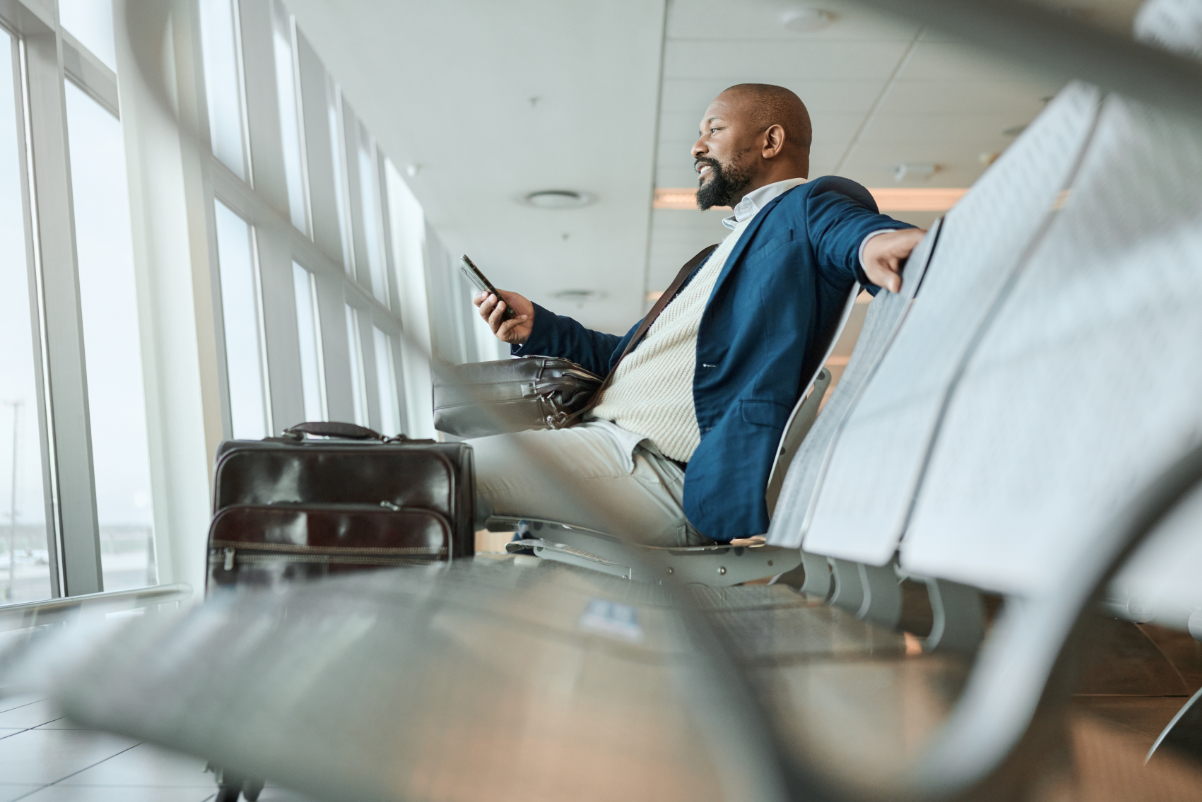Interview: Carnival CEO Arnold Donald on Turning the Ship Around
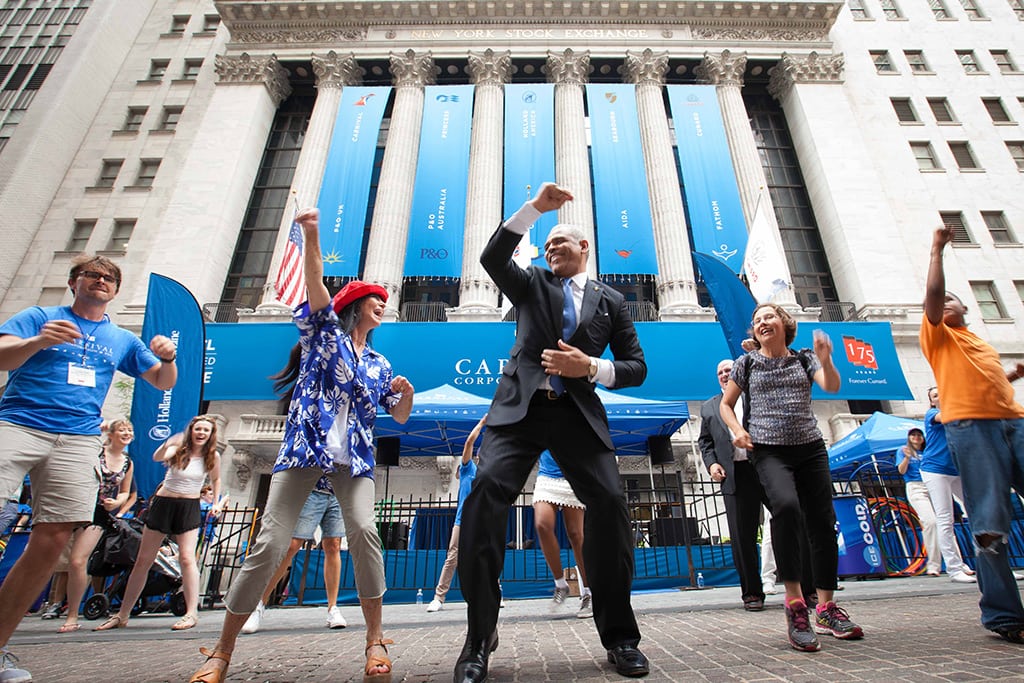
Skift Take
Turning around a giant object isn’t easy, whether it’s a ship that holds 4,000 people or a one of the largest travel companies by market cap and the home of 10 brands.
But that’s precisely what Arnold Donald was tasked with doing when he took over as CEO of Carnival Corp. in July 2013. The turnaround wasn’t purely financial (although the stock has improved under Donald), the job was to deal with months of terrible publicity and poor communication by the cruise line during crises that included the infamous “poop cruise” as well as the fatal Costa Concordia sinking in Italy.
Carnival’s most visible shift under Donald can be seen in its focus on getting cruisers to be the brands’ best advocates, from asking them to help create advertising campaigns to creating onboard Internet plans that let them share their trips on social networks while still at sea. It has changed how it communicates with the public, too, as was seen most recently when it went proactive on Twitter and Facebook after an onboard fire.
Behind the scenes Carnival is trying to be more nimble than most massive companies. It has been a first-mover in Cuba and is both adding ships in China and working on a line targeted at Chinese cruisers. And it’s still building. “One of the things we’re excited about is we’re going to have as many as five new ships in 2016,” Donald told Skift earlier this month. “We’re very excited to add those ships to our fleet. Beyond 2016 we’ve already announced we have a major new platform will be the largest ship in terms of number of guests. 6,600 guests at the maximum on the ship.”
Continue reading below for Skift’s full conversation with Donald.
Skift: You were on the Carnival board for over a decade. Even though, I think people would still consider you outside of the travel industry, what was the most eye-opening thing for you when you moved into the CEO role at Carnival?
Arnold Donald: The board is governance and the business is operations. The first thing I saw — which I had a glimpse of as a board member, but I wasn’t living it every day — was the incredible passion and commitment of our employees. Just the human spirit is sky-high amongst the employees. To be around that everyday is truly uplifting and inspiring and motivating. Every day is a good day. That was something I had a little feel for, but I couldn’t even imagine what it was like every day.
Skift: Outside of the realities of the team and seeing the dedication there, in terms of the travel industry as a whole stepping into it, whether it was figuring out how the travel industry thinks of Carnival as a brand or cruising as a part of the industry, or even about how travel is bought and sold these days, what kind of stood out the most in terms of Carnival’s role in the larger travel ecosystem for you?
Donald: The thing that stood out the most for me, and again, in terms of the dynamics of the travel industry and the role of our travel agent partners, I was not familiar with that just from board activity to be honest. What really was different for me was how clear it was to me, how dependent we were on our travel agent partners in helping us to convey and emote what cruising is and the fact that each of these brands — ours or other cruise companies’ brands — how different those experiences are.
How critically important it is for us to arm those travel agent partners with the right tools so they are motivated to take the time to understand the differences in the experiences so we get that right experience for that first-time cruiser. So they go on the right experience for them that’s really going to resonate and have them be lifetime advocates for cruising.
Skift: Carnival is a group of lots of different cruise lines and brands. Can you talk about the process of understanding how the brands work together and managing the separate teams?
Donald: We have 10 brands. We’re all leading brands, each one of them. Fathom is new, but nine already were all leading brands. Those brands had not worked much together. In fact, they had often worked almost in secret not wanting to reveal information to each other even.
Our two guiding principles are to exceed guests’ expectations and leverage our scale. One out of every two people who cruise in the world cruise with us. We have nearly 80 million passenger cruise days a year. We have tremendous scale. Nobody else that’s in the cruise business has that kind of scale. Not even close.
In any event we need to leverage that scale, but to do that we have to communicate, coordinate, and collaborate across our brands. The first step was to get the presidents together. We went out to North Carolina and I had them do goofy things to get them to relax around trusting each other and being open with each other.
Then I asked them three critical questions. The first one was what does success look like for you and your family five years from now? The second one, what does success look like for your brand five years from now and your people in your brand? Then the third was, what does success look like for the corporation five years from now?
It was a great experience. They got very excited about it. They all aligned around what success would look like and what it was going to take to get there. They were ready to go. They’re like, “Let’s go. This is great.” I said, “Well, yeah, but if I had told you guys these things there’s no way you’d be as excited about it or own it the way you do.”
About a month or two later we had the 70 leaders under those brand presidents and division presidents pulled in together and we had them go through exercises. We put them through the same sets of questions. Normally there’s always one or two people that are just not aligned no matter what, but it didn’t happen. It was 100% alignment on yes, that’s what success would look like and yes, that’s what we need to do to deliver that success.
At that point I knew we were off and running.
I’m not trying to centralize anything because the power is in the brand, but we put in experts in different areas whether it’s revenue management or whether it’s purchasing, sourcing, travel, airlines and purchasing, so on and so forth that act as coaches and gurus until we develop the muscle memory of communicating, collaborating, and coordinating across the brands.
Skift: You mentioned scale at the beginning. Can you talk about how you leverage scale with airlines?
Donald: With the airlines we’re the fifth largest purchaser of airline travel in the world, I believe. We never acted that way because everybody independently did it. Now what we’ve done is we’ve gone to all the airline companies as one entity.
Now there’s a brand committee made up of members from the brand. The guy who chairs it is someone who came out of one of the brands and I kept it in the brands. I did not want to do it as any kind of centralized function because then I could have unintended consequences.
For example, we’ve centralized something like airline travel purchasing, then frankly I’m sure I would save a lot of money, but I could also end up with a crew member leaving their country on a holiday in that country, having three connections, arriving an hour before they have to go on duty on a ship and pretty much being exhausted, tired, a little bummed having left their family on a holiday. Then having to interface with guests.
Happy crew, happy guests. Unhappy crew, unhappy guests. You could have unintended consequences so you need the brand’s heavy hand in the thing to make sure that you always have the guests first in mind. At the same time we need to leverage our purchasing so that we get obviously better pricing. That’s basically in effect what’s happened. We put out the RFPs to the airlines and whatnot and we’ve done a nice job improving in that area.
Skift: When you took over, you took over from the son of the founder of the company who was also rather an outsize figure in the industry. How have you managed to chart your own course there without people constantly second-guessing you?
Donald: First of all Micky Arison is absolutely not only an icon in the industry, but clearly a man that built this industry. He knows everything there is to know about cruising. He’s worked every job, he’s guided tours, he’s worked in the restaurants. He’s done everything. He understands travel agents, so he really knows this business.
Luckily for me he’s still on board as Chairman of the company. I have the world’s expert at my beck and call 24 hours a day, seven days a week. If I have a question I want to bounce an idea off of, he’s there. Also lucky for me, otherwise I wouldn’t have taken the job, he’s very comfortable in his own skin. He’s not trying to prove anything to anybody. He’s very comfortable. He asked me to do this along with the board and his feeling is I need to run it.
Even if he sees things differently his attitude is hey, I’ll give you my opinion, but in the end you go to where you want to go and that’s fine. He behaves that way. Being an icon, being in the business as long as he has with the deep relationships that he has in this organization and outside, it’s only natural that people would maintain that contact of talking to him.
He’s just been spectacular at always letting me know any conversations. Letting me know if there’s going to be a conversation. He’s just been fantastic with us. It’s a very easy working relationship. We have an open door policy. I don’t try to say you can’t talk to Micky or any silliness like that. We just have totally open communication. He has never pressured me to do anything.
He’s given me opinions. Most of the time I think he’s right and every now and then I say, “Well, you’re probably right, but let’s try this and see if it will work a different way.” He’s been very comfortable with that. I haven’t felt second-guessed by him at all. Along the way of course others are going to second-guess, but that’s part of the job and goes with the territory.
Skift: I’d say in the last 18 months or so Carnival has done a really surprising job at making people rethink the brand from ad campaigns to how you guys have done some raising of social media to get people to share their own stories to even how you responded last week with the fire on the ship in Puerto Rico with really clear communication to everybody via social media.
It seems you guys moved very, very fast and for a company so very, very large, that’s a rarity to be able to move that quickly and pivot. How do you think you’ve been able to make these changes so quickly to both people’s perceptions and also just not perceptions, but real stuff that’s really on the ground there at the company?
Donald: Honestly we had no choice. Things were so negative from a media interaction standpoint when I first came in that it was killing the business. Because part of what we have to do is — and when I say killing it, we’re still making money and all that, but the reality is part of it, what we need to do is bring new people to cruise. We were really going into headwinds in that because we had so much non-positive media attention.
We didn’t have a choice. The brands got more creative. We tried some things. The Super Bowl, I had a whole plan for that which was executed well and delivered on. Fathom was out of an intent to do good, whether or not an intent for anything else, but when you try to do good often good things happen.
All those things helped. Clearly the brands are delivering with their guests. They always have done that. They’re doing continuously better at it. The guests help us a lot because they are ecstatic. They love the experience and they’re our best promoters.
Skift: You talked about getting people on the ships and how that’s a challenge when the media environment isn’t very positive. Now that the media environment is more positive, how do you get people on the ships?
Donald: Keep in mind that basically maybe three and a half, 3.6% of the public cruise in a given year. It’s not just millennials, it’s every generation that we want to cruise. We have every generation cruising. We have millennials that already cruise with us. They go with their parents, their grandparents. We have lots of weddings on board. By definition the younger people there, those are millennials choosing to get married on the ship, so we already attract them across the brands.
There may be some tweaking and some niches such as Fathom that may over-index with millennials versus other generations, but in essence we undertook the largest segmentation study in the history of the industry and there were 40,000 interviews and segmented, looked at different segments. Because each brand is its own psycho-graphic segment. Carnival is a very different brand than Seaborn. It may over-index on certain demographics, but the real defining attributes are psycho-graphic.
The kind of experience people are looking for, not so much their income and their geography and so on. Anyway, through that segmentation study we gain new learnings about what resonates with each of the brands that’s unique to that brand with that brand’s targeted segment. Then we did always figure how big is that segment at any point in time. Then how do we effectively communicate within that segment? That’s the work we undertook. That’s the work we continue to refine in terms of how to communicate to the segments. We’ve seen some real progress.
Skift: What’s the most effective means you’ve found to communicating those differences? Is it media? Is it travel agents?
Donald: There’s no question, a knowledgeable travel agent is the best way. If you can get a person to a knowledgeable travel agent, someone who’s experienced the product like I have experienced it. I could really talk somebody through it, right? That takes time and stuff. Obviously they can call into our people.
Online we haven’t quite figured it out yet. We’re working on that. We have some things to help people with that, but it’s really hard in two dimensions to emote such a multiple dimensional experience. The trick is to emote it.
For people who have cruised a lot, this is all academic. They know and it’s fine, but for that new to cruise, that person who hasn’t cruised who has all these myths in their head, that cruising is only for old people. Cruising is only for young people who want to get drunk on Spring Break. I’m going to get sick with a norovirus or whatever.
All these images in their mind which are just not true. They don’t know that, and our ability to bust those myths and emote what cruising really is, is one of the great challenges for the industry.
Skift: I want to ask you a little bit about external factors. Right now the low fuel prices probably make things a little easier than when they’re high. What happens when prices go back up? Historically it’s been hard to pass those costs back onto the consumer. Cruise lines have had to deal with that in different ways, whether it’s adding different ancillary fees, increasing the cost of alcohol onboard, things like that.
Donald: Here’s the dynamic of the cruise industry. First of all we are capacity constrained. The ships sail full, ours and the competitors. We’re capacity constrained because there’s only so many shipyards. You can only build so many ships a year. There’s just not the yards to do it. In our case we have 100 ships. We can build one, two, three ships a year. Every now and then we’ll have four or something like that, but you can do the math. That’s 3 to 5% capacity growth. That by itself is not going to drive your returns to satisfy shareholders.
The gain for us is yield. Are onboard revenues, giving people more of what they want so they buy it and they spend their money with you instead of on land. Then ticket pricing. We are far and away the greatest vacation value there is — cruising is at any level. Whether it’s ultra-luxury or contemporary. We are just way beyond any equivalent land-based vacation from a value standpoint.
We have plenty of room to move on ticket pricing and still be the greatest value there is. That’s what we’re chasing. Now the fuel is helpful, it has been, the fuel price, but the reality is as fuel prices go down the dollar gets stronger. The nature of our global business is we get hit with currency. The net financial benefit to us of fuel is not at all what it would look like on the surface. It is a benefit between nets, between currency and so on, but it is not the driver for our financial performance.
The driver for the financial performance is improve yields, onboard revenue spending and ticket prices. Our plan as we’ve said to the street for many quarters now, our goal is to deliver double-digit returns off the capital in the next three to four years. To do that we have to do it through yields. We are going to deliver that regardless of what the fuel price is.
Skift: One of the ways that you guys are able to control costs is also through labor. One of the challenges that the hospitality industry is currently facing is the push to increase wages to in New York City, $15 an hour. Is there a concern that this wage push that other parts of the travel industry are facing is going to come to cruises? If so, how are you guys prepared to deal with that?
Donald: I think primarily where we get impacted tends to be more in the area of the telemarketing and the call centers. That tends to be where there’s some high minimum wage set or something like that. Again, the nature of our business on shore, most of the jobs pay above the minimum wage anyway.
It’s not a big impact on us. On the ship, as you know we recruit from around the world. In the mix, most of our guests are from outside the U.S. The mix onboard the ship for a lot of positions, either they’re well above minimum wage are those that could in theory be impacted. By the time you add in tips and all that stuff, again, they’re doing pretty well. They’re certainly doing well relative to what they can earn in their own country in a different job, in a land-based experience. An equivalent kind of role.
I don’t see a major direct impact. I’m sure there’s ancillary impact from the businesses that support the cruise industry and we need to pay attention to that.
Skift: When you look at rivals like Royal Caribbean or Norwegian is there anything that they’re doing right now that you admire and you call up your team and you’re like, “OK, why didn’t we do this?”
Donald: You know, first of all I’m glad you called them rivals versus competitors because our competition is land-based vacation. When one of every two people who sail, sail with you and all the cabins in the world, ours plus everybody else’s, adds up to 2% of the hotel rooms in the world, we’d be silly to chase the 1% when we ought to be chasing the 98%.
I don’t really see them as competition. I do see them as sometimes having best practices that we should adopt. I look everywhere for that. Not only with them, but hotels and amusement parks and anywhere where we can identify a best practice for a guest experience. We have no shame or anything in copying a really good idea that delivers a guest experience.
Specifically in ship design and stuff like that we look more on the technical end to see if somebody’s got more fuel-efficient ways to do things. We definitely will copy that. The big area for us is exceeding guest expectation. We think we’re pretty good at it, but we look everywhere to see specifically what can we do even better.
In fact one of the first things I did was I attracted the lead guest-experience guy from Disney, John Padgett. He developed Fast Pass. He developed the Magic Wand and all that. I brought him in and we’ve established Innovation Center not too far from the main offices here that he designed and built. We’re working on the next-generation guest experiences there to ensure that we are consistently exceeding guest expectations.
Skift: Can you tell me what in regards to the technology there, what’s the top priority in terms of guest experience and technology right now? Is it something like the Magic Bands or is it better onboard Wi-Fi or something like that?
Donald: To not get into specific deliveries, but the concept is pretty basic and you see it everywhere in life today. It’s to make the experience customized for that individual guest and to make it effortlessly and seamlessly customized to the taste and preferences of that guest. From the moment they begin to think about going on a vacation until well after they’ve come back off the cruise.
Not just think about a cruise, but think about a vacation. We want to be disruptive at every point. There’s a plethora of technology that comes into play in that space from that early beginning of, “I think I may take a vacation.” To well after I’ve gotten back from a cruise. Things like Wi-Fi and stuff or a specific tool for delivering on time, but the real emphasis is how do you engineer that customized, personalized to my personal preferences guest experience? That’s what we’re working on.
Skift: You announced Fathom back in May or April as a 10th brand. Is there any planned expansion on the way or areas that you’re looking at? I know river cruising has been hot the last few years.
Donald: I would say that in terms of just organic entry into river cruising, that’s not on our priority list right now. You have to have a lot of ships to make it financially material for a corporation of our scale. Not saying we would never look at being in river cruising in a big way, but for us to start entering and trying to build and stuff, that’s not anything we’d have any interest in.
For us the big things are China. China has got to be the world’s largest cruise market, bar none. We are the largest in China now. We’ll be even more the largest next year when we add a couple more ships into the China market. We’ll have six ships home-ported in China next year. We do very well there. Higher than the average fleet overall financially.
Also for us, Cuba is going to help refresh the Caribbean. As you know we’ve got historical approval to be the first to receive the approval from the U.S. government to sail to Cuba. We have to get the Cuban approval. We’re going to do everything we need to do so that they will be comfortable and happy having us come.
Then there’s our new destination Amber Cove in the Dominican Republic that we announced. Sailing will begin there in October. Amber Cove is about an $85 million development. A spectacular, just a spectacular destination property that we’ve developed. It’s going to be a great experience for guests as they go along Amber Cove there in the Puerto Plata region of the Dominican Republic. There’s almost 40 tours outside of our destination that people can take as well. It’s just going to be again, a refreshment to the Caribbean to give people a reason to go back to the Caribbean or to go again.
Then there is Fathom. Fathom today is one ship. It’s a small beginning, but the concept behind Fathom as you know is it’s a totally different kind of cruise. It’s for people who love to travel and who are looking for a way to make meaningful impact. It’s very different. Never been attempted before and as you know you’ve heard the stories of, I won’t bore you with all the details.
We are very excited about the potential to make lasting impact through systematic delivery of motivated, scaled volunteers with thousands of volunteer days a week added to entities that are already on the ground in that region making a difference. They already are doing it and we’re just helping them scale up and do it even bigger in a very systematic and sustained fashion, and holistically so the entire region has been over time transformed into a higher quality of life for everybody in that region.
We’re very excited about that. As we proof it out then obviously we will look to expand into other regions, not just Puerto Plata region of the Dominican Republic. We’ll go to other places and work alongside the people who are already there making things happen.
Skift: You’re one of the very few men or women of color in an executive position in travel in the U.S. What does the industry need to do to make sure that it has executive ranks that are as diverse as both the United States or even the destinations that they visit? Not to put all the responsibility on you to solve the problem, but …
Donald: No, no. It’s OK. So look, here’s the deal: Businesses sustain success over time through one common feature. It’s called innovation. You have to innovate. If you do not innovate over time you will get your path displaced or become obsolete. You have to innovate. Innovation by definition means thinking outside the box. It’s thinking differently.
If you want diversity of thinking, having diverse workers and diverse leadership and diverse management doesn’t guarantee diversity of thinking, but you have a far greater probability of it if you have diversity in your ranks than if you don’t. It is a business imperative. What anybody needs to do if they want diversity is they have to proactively intervene to create that diversity because human beings naturally cluster. It’s nature.
You have to be proactive in your intervention to engineer the diversity. That’s what you have to do. In our case a lot of it happened naturally because we go to so many places in the world and we recruit from so many different places for our shipboard personnel as well as our shore-side personnel. At the top we have to force that inclusion and that focus on diversity.
We’ve done that. We now have four women presidents of our brands. We have an LGBT member that’s president of a brand. We have an African-American that’s the president of a brand. My chief security officer is African-American. My general counselor is Hispanic. Not only those superficial things, but we look for diversity in the talent.
One person is super-skilled in Human Resources. Another one came out of the travel agent community and has that whole experience. Another one is deep in maritime experience. You want your team very diverse, so as they’re working together they’re bringing all those different perspectives. I can’t empirically demonstrate it, but I can experientially comment that a diverse team of people, talented, aligned around a common objective with a work process to work together. Because they’re different. You’ve got to give them a process to work together because it won’t be natural for them. But they will out-solution a homogeneous team every time.
That’s been my personal experience in all the different business and not-for profits that I’ve worked in. I’ve had some significant breakthroughs personally in engineering teams that way and continue to do so here at Carnival. That’s the spiel. You’ve got to proactively intervene and you have to think about diversity broadly and you have to think about diversity in the basic concept too of just getting people who really are. They look different. They grew up different from each other and all that. They speak differently. You need that.
